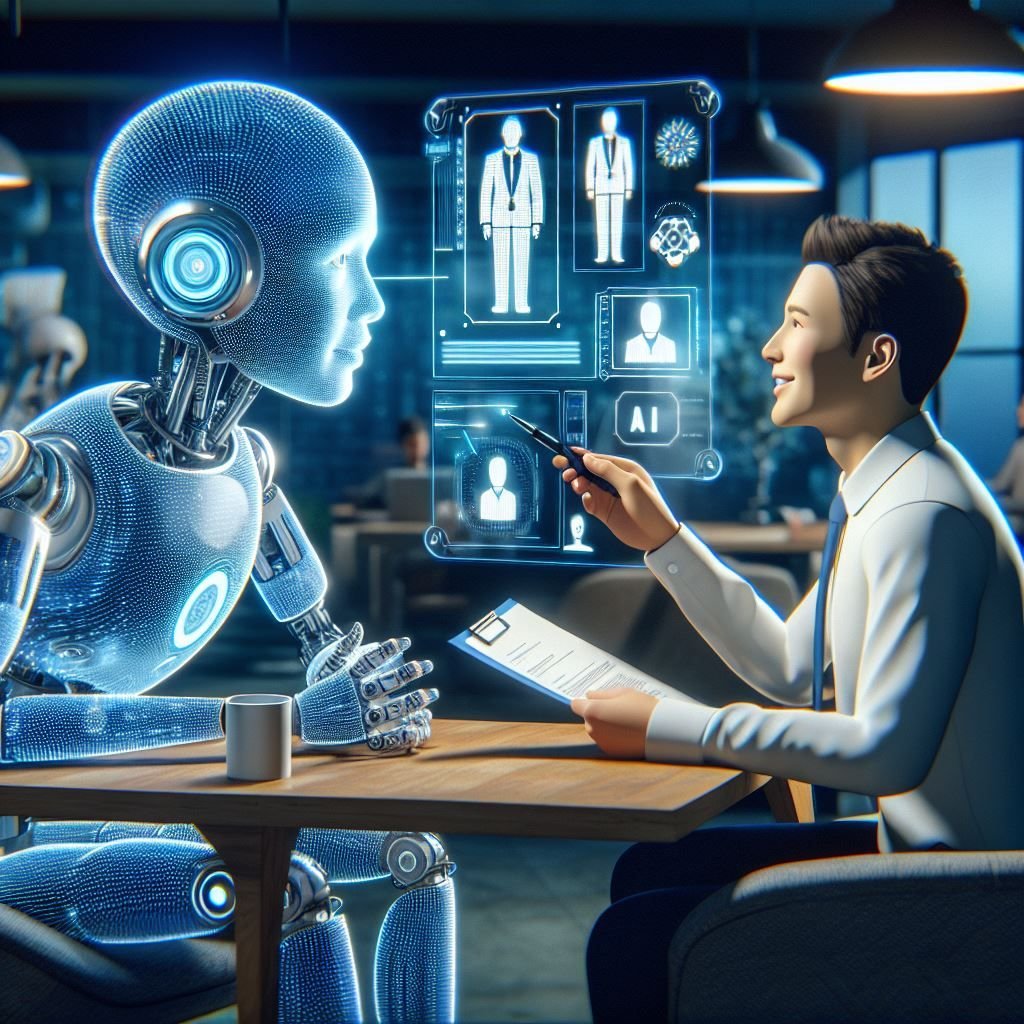Unlock the Power of AI in Hiring: Safeguarding Against Data Bias with Source Hub AI Marketing Services

TITLE: Promising and Perilous Aspects of Using AI in Hiring: Guarding Against Data Bias
Introduction:
As AI in hiring has become increasingly popular among HR professionals, enabling tasks like writing job descriptions, screening candidates, and automating interviews, Keith Sonderling, Commissioner with the US Equal Opportunity Commission, has warned of the potential for discrimination issues during his speech at the AI World Government event. The COVID-19 pandemic has only accelerated the proliferation of AI in HR departments, making virtual recruiting an integral part of the hiring process. With the current wave of "great resignation" followed by the "great rehiring," AI is expected to play a vital role.
The Power and Pitfalls of AI in Hiring:
AI has been used in hiring processes for various tasks, including interacting with applications, predicting candidate suitability, and identifying upskilling opportunities. Sonderling acknowledges that AI is now making decisions that were once solely in the hands of HR personnel, but cautions that if not implemented carefully, it could lead to discrimination at an unprecedented scale.
The Impact of Training Data on AI Models:
AI models rely on training data, and if the current workforce of a company is used as the training basis, it will reinforce the existing status quo. Sonderling emphasizes that AI could mitigate bias in hiring by race, ethnicity, or disability if properly trained. He cites Amazon’s experience, where their hiring application discriminated against women due to biased training data, as an example of why diversity in datasets is essential.
Legal Cases Highlighting Discrimination:
Sonderling brings attention to Facebook’s recent settlement of $14.25 million in civil claims accusing the company of discriminating against American workers and violating federal recruitment rules. The case centered around Facebook’s use of the PERM program, where American workers were excluded from job opportunities reserved for temporary visa holders. He reaffirms that excluding certain groups or downgrading them through AI systems violates equal opportunity rights enforceable by the commission.
The Role of Employment Assessments and AI:
Employment assessments have gained popularity since WWII, and AI can help minimize bias in this aspect of hiring. However, Sonderling stresses that employers cannot take a hands-off approach and need to be vigilant against discriminatory outcomes. He advises employers to carefully research solutions from vendors who vet data for biases related to race, sex, and other factors.
Example of Responsible AI in Hiring:
HireVue, a hiring platform based on the US Equal Opportunity Commission’s Uniform Guidelines, is cited as an example of an organization actively working to prevent bias propagation. The company ensures accurate and diverse datasets and builds algorithms that actively promote diversity and equal opportunity in hiring decisions.
Addressing Bias and Maintaining Credibility:
Dr. Ed Ikeguchi, CEO of AI analytics company AiCure, notes that bias in datasets used for training AI models extends beyond hiring. He highlights the lack of access to diverse training data, leading to unreliable AI systems. Ikeguchi calls for governance, peer review, and transparency in the industry to tackle bias. He emphasizes that algorithms must constantly evolve and learn from more data to improve their accuracy.
Conclusion:
Guarding against bias in AI-powered hiring is essential for ensuring fair workplace practices. By carefully implementing and training AI models with diverse datasets, companies can help mitigate discrimination. Compliance with equal opportunity regulations and partnering with responsible AI vendors can further enhance the fairness of the hiring process. It is critical for HR professionals and employers to remain vigilant, address biases, and strive for diversity and equal opportunity in hiring practices.
 With the rise of artificial intelligence (AI) technology, many businesses are using AI services to improve their hiring processes. AI services are proving to be invaluable in hiring for a variety of different jobs and fields, offering increased speed and efficiency to employers and recruitment professionals. However, there are potential risks when relying on AI to recruit, including data bias which can add an additional element of difficulty to the process. Fortunately, AI marketers are finding innovative and effective ways to help recruiters safeguard against data bias by leveraging advanced algorithms and machine learning programs. Source Hub AI Marketing Services is one such provider that aims to unlock the power of AI in hiring by providing comprehensive solutions that are designed to reduce the risk of data bias.
With the rise of artificial intelligence (AI) technology, many businesses are using AI services to improve their hiring processes. AI services are proving to be invaluable in hiring for a variety of different jobs and fields, offering increased speed and efficiency to employers and recruitment professionals. However, there are potential risks when relying on AI to recruit, including data bias which can add an additional element of difficulty to the process. Fortunately, AI marketers are finding innovative and effective ways to help recruiters safeguard against data bias by leveraging advanced algorithms and machine learning programs. Source Hub AI Marketing Services is one such provider that aims to unlock the power of AI in hiring by providing comprehensive solutions that are designed to reduce the risk of data bias.
Source Hub AI Marketing Services utilizes predictive technology to automatically select the best candidates for a given job position. This predictive technology helps employers sift through thousands of resumes while narrowing down the best fit candidates for a particular role. Additionally, Source Hub AI Marketing Services incorporates proactive machine learning programs into its recruitment system to assess candidate data and mitigate any potential data bias. For instance, if a company is looking to hire for a specific occupation or skill set, Source Hub AI Marketing Services can recommend candidates based on their qualifications instead of their demographics or background.
The goal of Source Hub AI Marketing Services is to empower recruiters with this powerful technology while giving them peace of mind regarding the fairness of their hiring process. By utilizing modern AI algorithms and machine learning technology, Source Hub AI Marketing Services guarantees more equitable hiring practices that result in better talent acquisition outcomes. Additionally, Source Hub AI Marketing Services eliminates redundant and erroneous data to ensure better accuracy when searching for the ideal candidate. Source Hub AI Marketing Services can be used in a variety of recruitment scenarios such as full-time, contract, or temporary positions.
At the end of the day, Source Hub AI Marketing Services ensures that recruiters have access to quality candidates swiftly and eliminates the risk of data bias in the process. AI is quickly becoming a vital tool in the recruitment industry and Source Hub AI Marketing Services is just one of many providers that are unlocking the power of AI to revolutionize the hire process.

